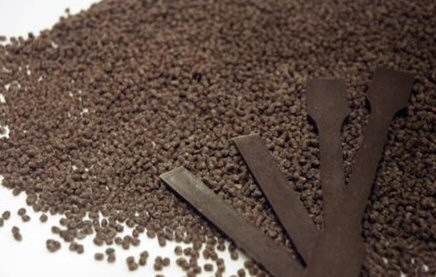
The joint venture company, called Automotive Performance Materials (APM), will draw on the assets of France's industrial and agricultural sectors to develop industrial uses for natural fibres such as hemp.
NAFILean
Through the joint venture, Interval will harvest and defibrate hemp and supply it to Automotive Performance Materials, which will transform and mix the product with polypropylene resin to create a material known as NAFILean, which can be processed in traditional injection moulding machines. Automotive equipment suppliers will then be able to use this material to make automotive parts such as instrument panels, door panels and centre consoles.
According to Faurecia, NAFILean enables weight savings of up to 20% on standard plastics, and reduces overall environmental impact by 20-25% through the components’ lifecycle.
| This agreement represents a key milestone in the global development of plastics containing bio-sourced materials. It allows us to pursue our ongoing campaign to achieve weight savings and develop environmentally sound products for automakers. |
| Raphaël Berthoud, General Manager, Automotive Performance Materials |
In the near future, Automotive Performance Materials will also begin industrial production of BioMat, a 100% bio-sourced plastic that uses fibres and natural resins obtained from biomass, developed in partnership with Mitsubishi Chemical.
Automotive Performance Materials aims to supply the automotive industry through Faurecia and other companies. It has started production in France and is set to expand to the North American market in 2016, with plans to export to Asia by 2018.
Faurecia, headquartered in France, continues to invest in research into bio-sourced materials with the dual goal of reducing environmental impact and promoting independence from oil-based products.





